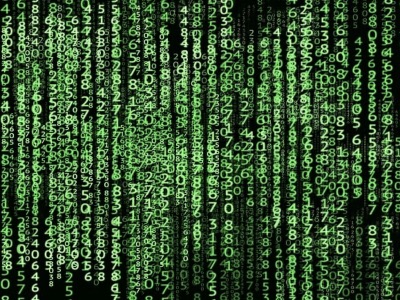On a cold evening in 1641, the French philosopher René Descartes is sitting in front of his fireplace. The fire crackles and Descartes stares into the flames writing. His mission is nothing less than to find the foundations of knowledge. But as he sits and thinks, he realises that this may prove to be extremely difficult. It occurs to him that he could only be dreaming that he is sitting in front of this fireplace as it happens to him – what if he’s just dreaming it all and doesn’t know it? What if he is dreaming everything he believes to be true? He seems to know nothing for sure about the world! How can he know that anything really exists?
Let’s see how René Descartes deals with this situation and whether he finds a solution…
Maybe you have already heard of Descartes – you may have come across his Cartesian coordinate system in your maths lessons at school. But mathematics is not the only area for which he is famous. Descartes, who lived from 1596 to 1650, is also well known today for his philosophy. And as you can see from the beginning, philosophy can be extremely important – for what would happen if Descartes’ doubts were true and everything was a dream? How could we then live our lives?
The branch of philosophy that deals with existence and reality is called ontology, from the ancient Greek words for “being” and “logical discourse”. Descartes’ questions and doubts fit perfectly into this category. Let’s see how he approaches it:
Descartes develops a method of doubt that follows certain rules. He sets a goal and rules for it – because he doesn’t want to doubt the whole of existence just for the sake of doubting. That would only lead to despair and would not help him at all in his situation. Instead, Descartes wants to use methodical doubt as an instrument! The goal he wants to achieve is to find one point of knowledge that he can absolutely rely on, something that is completely true – the foundation of knowledge! He wants to have a point about which he can be absolutely certain. This might enable him to find more certain knowledge. Because in the end he wants to have proved not only his own existence but also the existence of God and the immortality of the soul.

First of all, what is knowledge that we can accept as real knowledge? It must be something that is stable and valid over a long period of time. And to make sure it is absolutely certain, we must only accept information that we know to be true and perceive clearly, and question everything else that we seem to know. This first rule of his method is the rule of scepticism.
For example, Descartes might only dream that he is sitting in front of the fireplace. Or you could be dreaming that you are reading this article – maybe your body is somewhere else and you have no idea!
Or maybe you are awake, but an evil spirit is tricking you into thinking you are reading this article while you are actually sitting on the surface of the moon.
A more modern interpretation of this problem is that it could be like in the 1999 movie “The Matrix”. In that story, intelligent machines simulate a kind of virtual reality that
humanity believes it is living in – but in reality, all humans are imprisoned by those machines.
So we should be sceptical and not trust our senses, because they might betray us.
The second rule Descartes suggests is to break down all problems into smaller units that are easier to solve – this method is called analysis.
Thirdly, we should start with the simplest problems and then move on to the more complex ones. This method of construction means that we start with the concrete problem of our own existence and reality, and then we can go on to deal with the existence of the world around us.
The final rule, the rule of recursion, is to make sure that our argument and our list of problems is complete – and that’s it, our method of doubt!

But where does it take us?
Descartes says that he doubts. But that means that he doubts and therefore that there is someone who thinks! And if he thinks, he must exist (in Latin, as you have probably already seen on postcards or in schoolbooks: cogito ergo sum). There it is, the one point Descartes has been looking for: He can doubt everything else, but for now at least be sure that he exists. Only being sure that one’s own mind exists has – like everything else in philosophy – a complicated name: solipsism. And with this foundation we can now proceed:
Descartes said that everything that we clearly perceive (such as the thought that if we think we must exist) is true – something we have already used in the first rule he proposed. As part of this argument, he thought that the cause of something perfect could not be less perfect. From this theory he concludes that if we imperfect humans have an idea of a perfect God, then our idea cannot be the cause of God’s existence – so God must exist. And if God exists, then no evil spirit can deceive us. This means that everything that seems clearly true to us is true, and therefore we definitely exist, and therefore God exists, and therefore no evil spirit deceives us, and therefore… Do you see the problem? We are stuck in a loop of arguments!
And this means, unfortunately: We cannot accept Descartes’ argument. It is a circle, and this kind of argument is not logical, and also contradicts Descartes’ own rules of questioning all unproven statements.
In the end, we haven’t solved the problem, and we can still wonder if everything is just a dream. At least Descartes was happy to have found his own solution.
However, he showed us this interesting method of doubt, now called Cartesian doubt after its inventor, and it can teach us a lot. We don’t know much for sure, if we are honest with ourselves – even if we think he was exaggerating with all his doubting. This should motivate us to think and find our own solution – maybe, if you don’t get a headache from all this questioning of reality, you will now feel motivated to philosophise yourself and go down in the history of ontology!
References:
- https://en.wikipedia.org/wiki/Cartesian_doubt – Wikipedia, 14/03/2023
- https://www.britannica.com/topic/methodic-doubt – The Editors of Encyclopaedia Britannica, Encyclopaedia Britannica, accessed 15/06/2023
- https://www.thecollector.com/descartes-skepticism-doubt-to-existence/ – Igor Zanetti, TheCollector, 15/11/2022
- https://de.wikipedia.org/wiki/Ren%C3%A9_Descartes#Philosophische_Methode – Wikipedia, 26/05/2023
- https://de.wikipedia.org/wiki/Gottesbeweis#Der_ontologische_Gottesbeweis – Wikipedia, 17/06/2023
- http://www.zeno.org/Philosophie/M/Descartes,+Ren%C3%A9/Untersuchungen+%C3%BCber+die+Grundlagen+der+Philosophie/1.+Ueber+das,+was+in+Zweifel+gezogen+werden+kann– René Descartes, accessed 22/06/2023
- https://en.wikipedia.org/wiki/The_Matrix – Wikipedia, 10/06/2023
- Das Philosophiebuch, Monika Schlitzer et al., Dorling Kindersley Verlag GmbH, Munich, 2011

